- Home
- Sean Platt
Yesterday's Gone: Season Six Page 2
Yesterday's Gone: Season Six Read online
Page 2
Paul pushed the thought into Frank’s head: Am I really gonna let Tony do this?
Paul swallowed, heart racing, hoping he’d not misjudged the situation.
“Wait,” Frank said.
Tony looked back. “What?”
“Let him go.”
“What?”
“We don’t need this shit. Give him his medicine and gun. We’re letting him go.”
Paul had hoped to leave with his life, and maybe a bottle of pills, but the gun, too? His smile was hard to throttle.
“What the hell?” Tony said. “You letting this guy go because, what, he’s got a kid?”
“It’s not worth it,” Frank said, still cool. “He ain’t done nothin’ to us. Let’s just be on our way.”
Tony looked back at Paul like Daddy was telling him to return his toy to the shelf. But Tony wasn’t letting go. He shoved his gun back in Paul’s face then turned to the other men. “What do you two think? We letting this fucker go?”
Marco and the other one, whose name Paul didn’t yet know, exchanged glances, both avoiding the gaze of either Tony or Frank.
Paul could tell from snippets of Frank’s thoughts that he wasn’t father to any of the men. But he must’ve been someone who knew them before the world went to shit, someone who had their respect — otherwise Tony would’ve been leader. Whatever the struggle’s origins, it festered for a while.
Still calm, Frank said, “We’re letting him go. This isn’t up for debate.”
“No?” Tony turned his aim on Frank. “I say we have a vote. Everyone who thinks we should let this guy go, say nothing. Everyone who says we follow him home and get his stuff, raise your hands.”
The four men traded stares. Only Tony was aiming a gun, at Frank.
Paul watched the first nameless man raise his hand.
Marco followed.
Fuck.
Tony raised his empty hand. “Sorry, Frank, you’ve been outvoted.”
“This isn’t a democracy.” Frank raised his shotgun at Tony. “Now put your gun away, and let’s end this.”
“You’re right,” Tony said, “this isn’t a democracy. And we’re tired of taking orders from you. How about another vote — for a new leader? Raise your hands if you want me to lead.”
The unnamed man raised his hand; Paul’s gut somersaulted.
Marco’s hand creeped up.
The men voted, Tony’s back to Paul.
Now was his chance.
Paul drew his gun, aimed at the back of Tony’s head, and fired twice.
Gunshots thundered through the alley.
The three remaining men traded shots.
Marco fell back, a gunshot blast to the chest. Before the unnamed man could hit his target, Frank and Paul brought him down with another two shots. All the young men were dead.
It was just Paul and Frank left, staring each other down, guns aimed.
Paul’s hands shook. His heart raced, pounding loud below his ringing ears. He thought about pushing a thought into Frank’s head but didn’t think he needed the risk.
Frank stared at him but wasn’t taking the shot.
Paul raised his gun at the sky. “We good?”
Frank looked down at the men with no emotion and nodded. “We’re good.”
Frank went to each of their bodies, retrieved the men’s fallen bags, hoisted them over his shoulders, then reached into his jacket and pulled out three of the four bottles of antibiotics and tossed them, one at a time, to Paul.
“Be careful out there,” Frank said then turned to be on his way.
Paul let out a deep sigh of relief then went to the dead man who’d taken his gun. As Paul leaned over to get it, a cacophony of shrieks echoed off the buildings.
He spun around, gun raised, just in time to see a trio of black creatures descend from the shadows above, dropping on top of Frank. They were fast — long, black, wet limbs like lightning, large clawed hands slicing Frank’s body to pieces in an instant.
Frank fell to the ground, in chunks of flesh and splashes of blood.
Paul was paralyzed.
He’d seen the aliens from the windows of an upstairs apartment and on TV before the networks — and power — had left forever. But never up close.
They were tall, though bent, almost as if their enormous, bulbous heads were too heavy for their long, thin necks. Their eyes were large and even blacker than their almost translucent flesh. Something like lights pulsated under the aliens’ flesh in an almost rhythmic, hypnotizing, cycle that Paul found it impossible to turn from.
They spun toward him.
He wanted to run. But the thought came too late.
They closed in on Paul in an instant, surrounding him, arms raised, wide-open mouths with sharp black teeth chattering, clicking, as that horrible shrieking grew so loud that he wanted to cover his ears and crawl into a hole.
The aliens were so close, he could feel an icy wind wafting from their bodies, sending chills through his.
He wanted to raise his pistol and fire but couldn’t eliminate three aliens at once. Even if he managed to injure or kill one, the other two would shred him, like they had Frank, in seconds.
Before Paul could raise his barrel to aim, he noticed that the aliens were no longer moving — almost frozen in place.
What the hell?
Paul looked up to see his panicked reflection in their large black eyes, staring at him as if waiting for a reboot.
A man’s voice spoke from behind.
“Mr. Paul Roberts, what an honor to finally meet you.”
The aliens, all three at once, fell from their positions, allowing Paul to see the man walking toward him.
Why isn’t he scared of them?
Is he controlling them somehow?
Maybe he’s one of them — an alien within a human host.
The man was wearing a charcoal gray suit and had brown hair, greased back, and piercing blue eyes. Paul could easily cast him as a successful entrepreneur on one of his shows. But there was something else about the guy, something under the surface — maybe the way he’s controlling the aliens, or how he knows my name? — that unsettled Paul like the sight of his own headstone.
“Who are you?” Paul asked, not attempting to hide his suspicions or fear. “And how do you know my name?”
“My name is Desmond Armstrong, and I’ve been watching you for a while.”
“Watching me? How?”
Desmond smiled. “I have eyes and ears everywhere, Mr. Roberts.”
The aliens clicked as if acknowledging their master.
“What are you?”
“I suppose that depends on whom you ask. I think the question you ought to be asking is why I’m so interested in you, Mr. Roberts.”
“Okay. Why?”
“Because I could use a man with your talents.”
“Talents?” Paul wondered how he could possibly know of his talents.
“I’ve seen you talk your way out of certain death no less than six times in the past couple of weeks. In a world full of people running around like chickens missing their heads, you maintain your composure. You’re able to negotiate your way out of almost anything, aren’t you? I’d call it an almost preternatural quality you possess. Would you agree?”
Paul wasn’t sure if the man was leading him with the question, trying to see what he might admit.
Desmond stepped toward Paul, eyeing him up and down. His gaze was unnerving, like an unwanted lover’s. But Paul didn’t dare move, or take offense. Doing so would spell his death, and given what the man seemed to know, perhaps Emily’s too.
Desmond, now behind him, said, “You’re thinking about your daughter right now, and whether she’s in danger.”
He said this matter-of-factly, not even asking.
Can he read my mind?
Is he doing it now?
Oh, God!
He focused on nothing, clearing his mind and thoughts, a technique he’d learned from The Church of Original D
esign — the place that gave him the materials to hone his talents early on.
Desmond spoke again, “Ah, clearing your mind, I see.”
Paul felt like a magician whose act had been spoiled. He turned to Desmond. “Get out of my head.”
Desmond laughed, a small laugh like you might use with a child who was trying to outwit you.
“Don’t worry, Mr. Roberts, I am not here to harm you, or your sick daughter. On the contrary, I’m here to help you both.”
“How are you going to help us?”
“I have an important job vacancy. It requires a man of your talents.”
Paul was horrified. He’d heard rumors of aliens going into people’s bodies, taking them over like sinister puppeteers. He’d rather die, would rather Emily die, than have either of them play host to these foul things.
Desmond frowned. “I’m sorry you view us with such disgust.”
Paul swallowed. He’d offended the alien, and now he would pay.
“I said I’m not going to harm you, and I meant it. You can walk away right now and never see me again. I can’t promise your safety, of course. It is a rather barbaric world, I’m afraid, and I’ve no control over the savages that still scour the streets.”
By savages he surely meant men.
Desmond continued, “And you needn’t worry about us hijacking your body. I want your unique mind, Mr. Roberts. For me to install one of our own into you would infinitely lessen your value. You come with me, and I promise to provide you and your daughter a safe haven. You can live with others who are serving to build a new society, free of illness, death, and violence.”
“I’ve seen what your things have done to my people. You call that safe?”
“We are merely clearing dead wood, eliminating the worst of your kind. But there is a place for you both in our society, where excellence is esteemed, and well rewarded. I promise: Come with me, and Emily can live a long, happy life by your side. We have people who can cure her.”
Paul stared at the man, trying to gauge his honesty. It was difficult to be certain — especially when he wasn’t dealing with a human intelligence whose mind he could enter — but his gut said that Desmond was telling the truth.
“Are you interested, Mr. Roberts? Or shall I leave you to your few remaining days in an underground hovel spent waiting for your daughter to die?”
Paul flinched.
He wanted to hit the man for threatening Emily. But Desmond’s tone conveyed more honesty than threat. The alien had offered to cure Emily. Even if she survived the sickness without the aliens’ help, how long could they live like this? They were on borrowed time. Sooner or later, aliens, or men who wanted what little they had left, would find them. Paul had been lucky, six times by Desmond’s count, but how long could such luck run?
Paul knew people well, but he also knew luck, and when people were pressing it. He’d seen too many contestants in his games push their fortunes too far. The woman who’d been close to walking away with two million dollars in the show’s third season — but allowed herself to gamble it all for a chance to knock out a threat to her seat in the house. She left with a consolation prize instead. And she was hardly alone when it came to people who didn’t recognize an opportunity for what it was.
Paul met Desmond’s eyes. “Well?”
* * * *
CHAPTER 1 — Boricio Wolfe
Las Orillas, California
2017 (present day)
“Son of a fucking cunt!” Boricio’s knife slipped through the apple’s side and into his left index finger.
He raised his digit and examined the wound. The slice was deep but clean. Pain pounded through to his bone, worse than it had any right to feel.
“You okay?” Mary came to the kitchen from the living room where she’d been napping.
She brought his finger to her mouth and kissed it. Blood dabbed her lips in a crimson stain, turning him on more than it had any right to.
“I’ll be fine.” He took his hand back and searched the cabinet under the sink for his red plastic box. He grabbed a bandage and tore it open.
“Wait, you need to rinse it out first.” Mary grabbed a bottle of water from the counter and flipped off the cap.
Boricio let her pour a little water over his wound then held up a hand. “That’s enough. Let’s not waste it.”
He patted the wound dry with a paper towel then wrapped a bandage around his finger.
“See, this is what happens when you use dull knives!” Boricio raised the blade for Mary to see the offending party. “I need to find some baby knives or a sharpener for the geriatrics.”
Mary laughed. “Sorry that the comforts of postapocalypse life don’t suit Chef Boricio.”
“Hey, I was a damned good chef, and I’ll have you know you’re pretty fucking lucky to have me at the stove. Especially with no power, running water, and whatever the hell I can find left on Planet FuckAll.”
“Don’t forget the contributions of my rooftop garden,” Mary reminded him.
“Of course, Miss Mary, how could I ever forget how your garden grows, or the bounty it brings to my kitchen? I have all the truffles I could ever want.”
“Oh, shut up, I grow some damned good tomatoes, carrots, and radishes.” Mary grabbed Boricio’s apple from the counter and took a bite. “Wouldn’t cut yourself if you ate apples like a normal person. Where did you even get an apple?”
“When Ed and I went to visit The Farm last week.”
“Oh.” Mary turned away and looked out the window. She was either great at being a drama queen or the world’s shittiest poker player, because the way she turned off and away whenever The Farm came up in conversation, Boricio felt like he was watching a guest star on Manimal.
“You know you could’ve come.” Boricio came up behind Mary and wrapped his arms around her waist.
“No,” she said, false pride wounded. She was still annoyed that Marina had left their group and gone to The Farm, saying she’d had enough of war and The City. “It’s fine. So … how are they?”
“They’re doing okay,” he said, staring out at what was left of the Las Orillas skyline. Scout ships dotted the sky, alien fuckers searching for more people to grab and bring to the mothership floating over The Island like some goddamned hobbit-hating red eye. He couldn’t wait to find a weakness in their program and bring the fuckers down. But even after four years, the alien occupation still felt as far off as a return to TV with ALF as the main attraction. They’d already lost the war on the other world, with most of the Black Mountain Militia, as he liked to call them, retreating then coming over in a portal that Luca had made — back when the Boy Wonder still had considerable power coursing through him.
Mary said nothing, continuing to stare out the window at the setting, sky bleeding orange and violet.
“Go ahead,” she said.
“Go ahead what?”
“Say it.”
“Say what?”
“That we should go there, too.”
“Nope. I’m not bothering with that line anymore. You already chewed my ass like it’d been too long on the grill. Our place is here, fighting on the front lines. Besides, neither of us is the type to settle on a farm.”
Mary said nothing, staring into her past — reflecting on a life she no longer had. She’d lost her daughter. Lost a baby. Two, actually. There was once a Mary who would’ve longed for a farm to settle on, but that Mary was buried beneath several calloused layers of pain. This Mary was Linda Fucking Hamilton in Terminator 2: buff, badass, and looking for a fight.
Boricio would have loved to help bring the Old Mary back, but he also loved being with a woman who was starving for violence like he was. Someone who didn’t shy away from killing bandit wannabes, blowing alien cornholes to chunky nuggets, or finding traitorous fucks who sold out their brothers to the aliens and decorating the streets with their skinned remains so other survivors wouldn’t be so swift to turn their coats.
“You thinking ‘bout
the little lamb?”
“Yeah.”
“I think about her, too,” he said. “Paola was a good kid.”
Mary kept staring out the window.
Times like this, Boricio wished she’d show some emotion and cry for her daughter. Hell, a part of Boricio wanted her to weep on his shoulder — he was surprisingly old-fashioned that way. But tears couldn’t own her, and she refused to dwell on what couldn’t be.
A knock on the front door cut into their quiet, rapid and careless, ignoring the coded knock rebels were instructed to use.
In most circumstances, Boricio would see that as a sign that shit was wrong, that maybe someone was being coerced to knock and draw them out. But a few of their recent recruits weren’t exactly the sharpest crayons in the box. But hell, beggars were bitches when even choosers were chumps.
Mary grabbed her shotgun from the kitchen table.
Boricio grabbed his knife from the counter. Even dull-for-apples would gut a fucker fine.
“Who is it?” Boricio asked.
“It’s me, Barrow.”
Boricio rolled his eyes. Jake Barrow was the freshest of his recruits, a freckle-faced sixteen-year-old farm boy who was as big as a linebacker but dumb as one who’d taken a few too many hits. He’d lost his family to the plague last year and had been wandering upstate searching for God Knew What when Boricio and Ed found him and invited Hayseed Harry back to The City.
Boricio glanced at Mary to make sure she was ready, in case he didn’t use the code because he happened to be at gunpoint or some shit, then opened the door.
Barrow stood there, sweating — obvious even in the candlelit living room — out of breath, eager to spit something out.
“You forget the fucking knock?” Mary said before the boy could open his mouth. She slammed the door shut behind him then sat her shotgun down on the couch.
“S-sorry, I forgot. I was in a hurry to get up here and tell you.”
“Tell us what?” Boricio asked, waiting for Barrow to hit the fucking point.
“They’re dead.”
“Who’s dead?”
“Matt and Jace.”
“What the hell you talking about?” Boricio asked.

 Jumper: Books 1-6: Complete Saga
Jumper: Books 1-6: Complete Saga WhiteSpace Season One (Episodes 1-6)
WhiteSpace Season One (Episodes 1-6)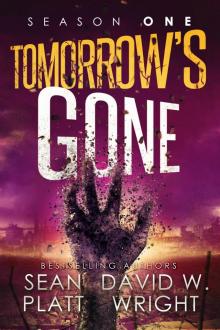 Tomorrow's Gone Season 1
Tomorrow's Gone Season 1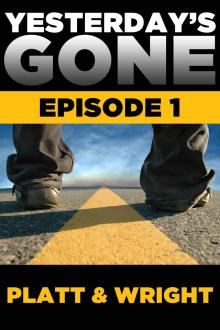 Yesterday's Gone: Episode 1
Yesterday's Gone: Episode 1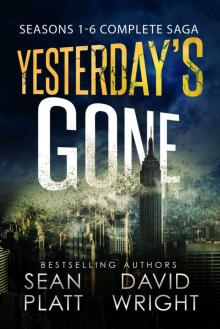 Yesterday's Gone: Seasons 1-6 Complete Saga
Yesterday's Gone: Seasons 1-6 Complete Saga The Beam- The Complete Series
The Beam- The Complete Series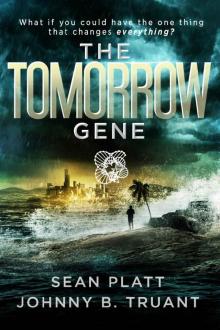 The Tomorrow Gene
The Tomorrow Gene Karma Police: Karma Police Book Two
Karma Police: Karma Police Book Two The Fall (Karma Police Book 5)
The Fall (Karma Police Book 5)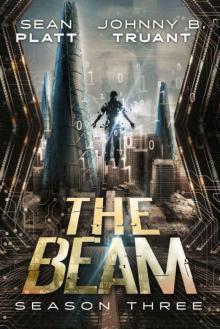 The Beam: Season Three
The Beam: Season Three Resurrection
Resurrection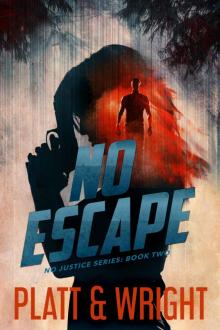 No Escape (No Justice Book 2)
No Escape (No Justice Book 2) Deviant (Karma Police Book 4)
Deviant (Karma Police Book 4)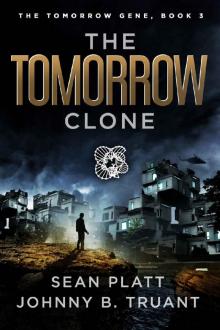 The Tomorrow Clone (The Tomorrow Gene Book 3)
The Tomorrow Clone (The Tomorrow Gene Book 3)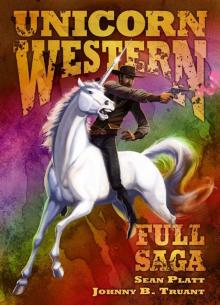 Unicorn Western
Unicorn Western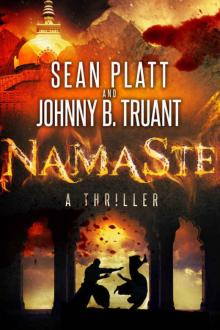 Namaste
Namaste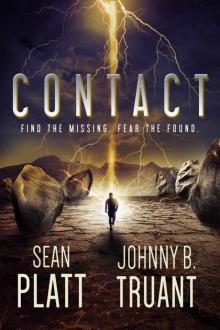 Alien Invasion (Book 2): Contact
Alien Invasion (Book 2): Contact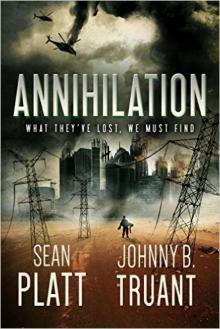 Alien Invasion (Book 4): Annihilation
Alien Invasion (Book 4): Annihilation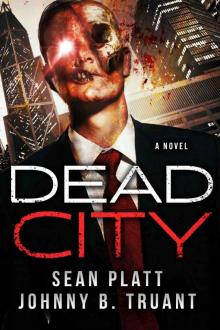 Dead City
Dead City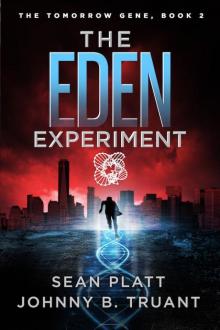 The Eden Experiment
The Eden Experiment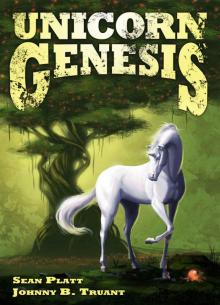 Unicorn Genesis (Unicorn Western)
Unicorn Genesis (Unicorn Western)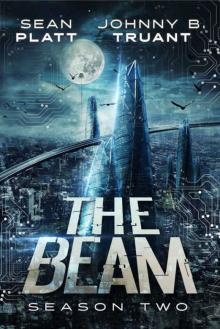 The Beam: Season Two
The Beam: Season Two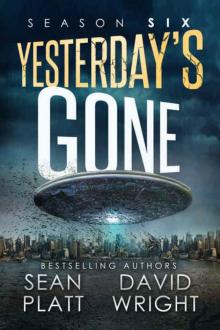 Yesterday's Gone: Season Six
Yesterday's Gone: Season Six Homecoming (Karma Police Book 6)
Homecoming (Karma Police Book 6)![[Alien Invasion 01.0] Invasion Read online](http://i1.bookreadfree.com/i1/03/30/alien_invasion_01_0_invasion_preview.jpg) [Alien Invasion 01.0] Invasion
[Alien Invasion 01.0] Invasion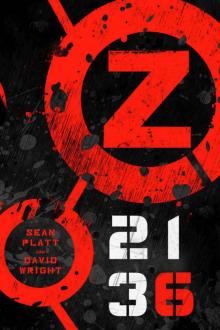 Z 2136 (Z 2134 Series Book 3)
Z 2136 (Z 2134 Series Book 3)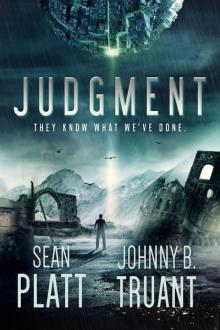 Alien Invasion (Book 5): Judgment
Alien Invasion (Book 5): Judgment Threshold
Threshold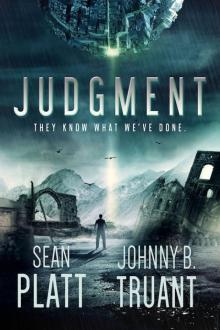 Judgment
Judgment Jumper: Karma Police Book One
Jumper: Karma Police Book One Boricio Goes Camping (Dark Crossings)
Boricio Goes Camping (Dark Crossings)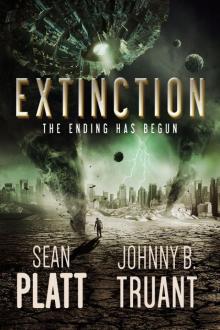 Extinction
Extinction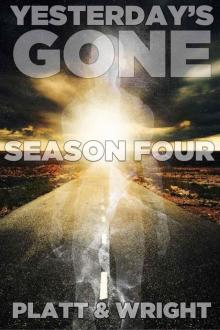 Yesterday's Gone (Season Four): Episodes 19-24
Yesterday's Gone (Season Four): Episodes 19-24![[No Justice 01.0] No Justice Read online](http://i1.bookreadfree.com/i2/04/09/no_justice_01_0_no_justice_preview.jpg) [No Justice 01.0] No Justice
[No Justice 01.0] No Justice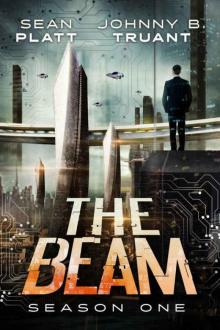 The Beam: Season One
The Beam: Season One La Fleur de Blanc
La Fleur de Blanc The Collectors (Karma Police Book 3)
The Collectors (Karma Police Book 3)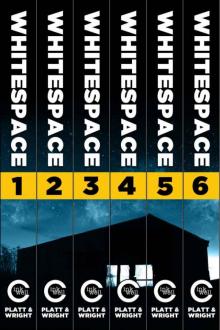 WhiteSpace: Season One (Episodes 1-6 of the sci-fi horror serial)
WhiteSpace: Season One (Episodes 1-6 of the sci-fi horror serial)